Growing partnerships to harvest change
.jpg)

Especially in times like these, with international cooperation under strain, we believe the answer lies in forging even stronger, deeper collaborations and connections. Whenever a challenge arises, the question should always be: who else needs a seat at the table? For us, partnerships have always been a crucial element in our way of working, to achieve lasting food system change.
In our Annual Report 2024, we showcase highlights and lessons learnt from our three global programmes: our Sustainable Rice, Sustainable Cocoa and Coffee, and Good Food for Cities programmes.
Dive straight into our full 2024 Annual Report, or scroll down for the opening words of our Executive Director, Chris Claes, and a summary of our 2024 achievements.
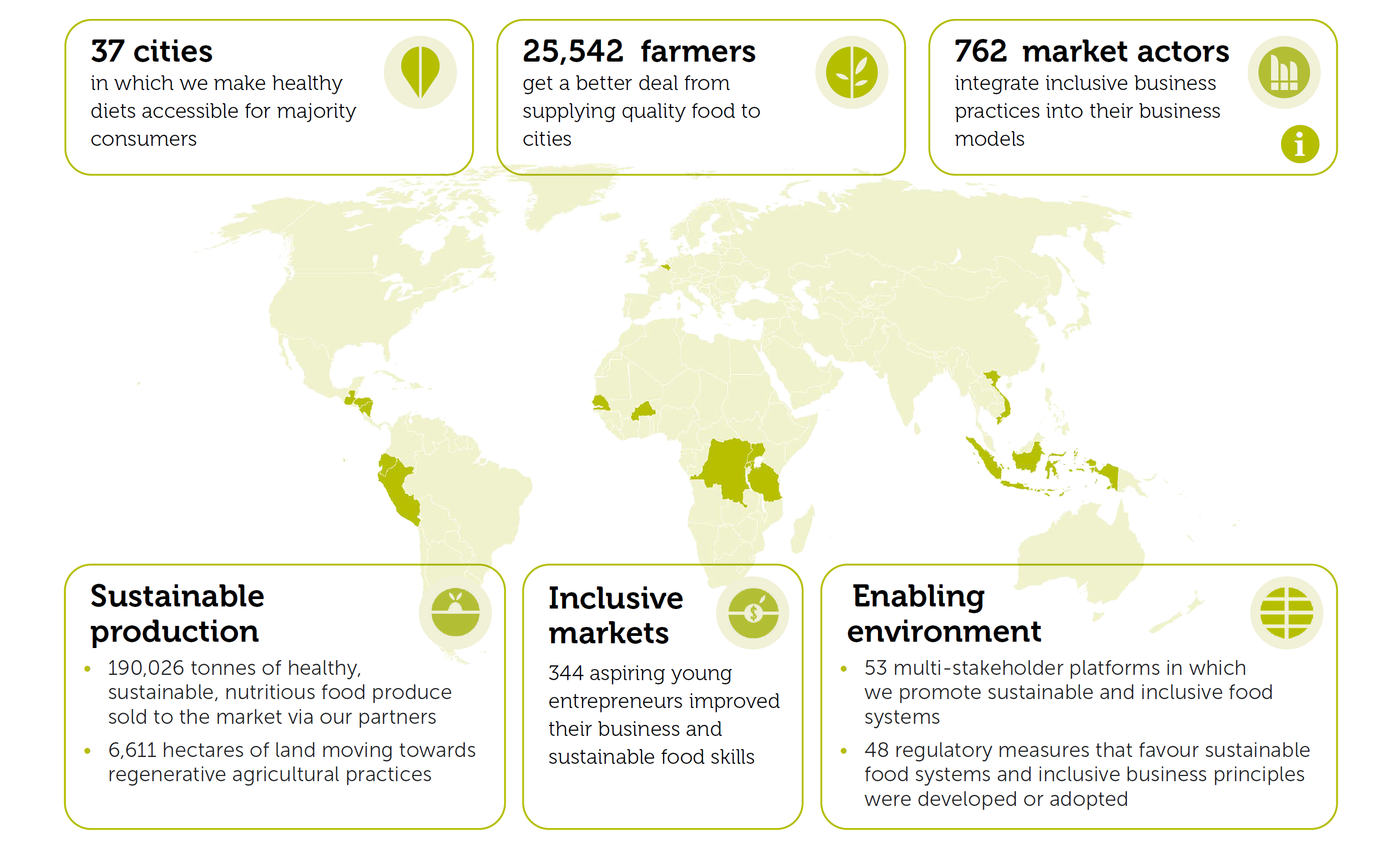
Explore some of the highlights of our Good Food for Cities programme in 2024.
.jpg)
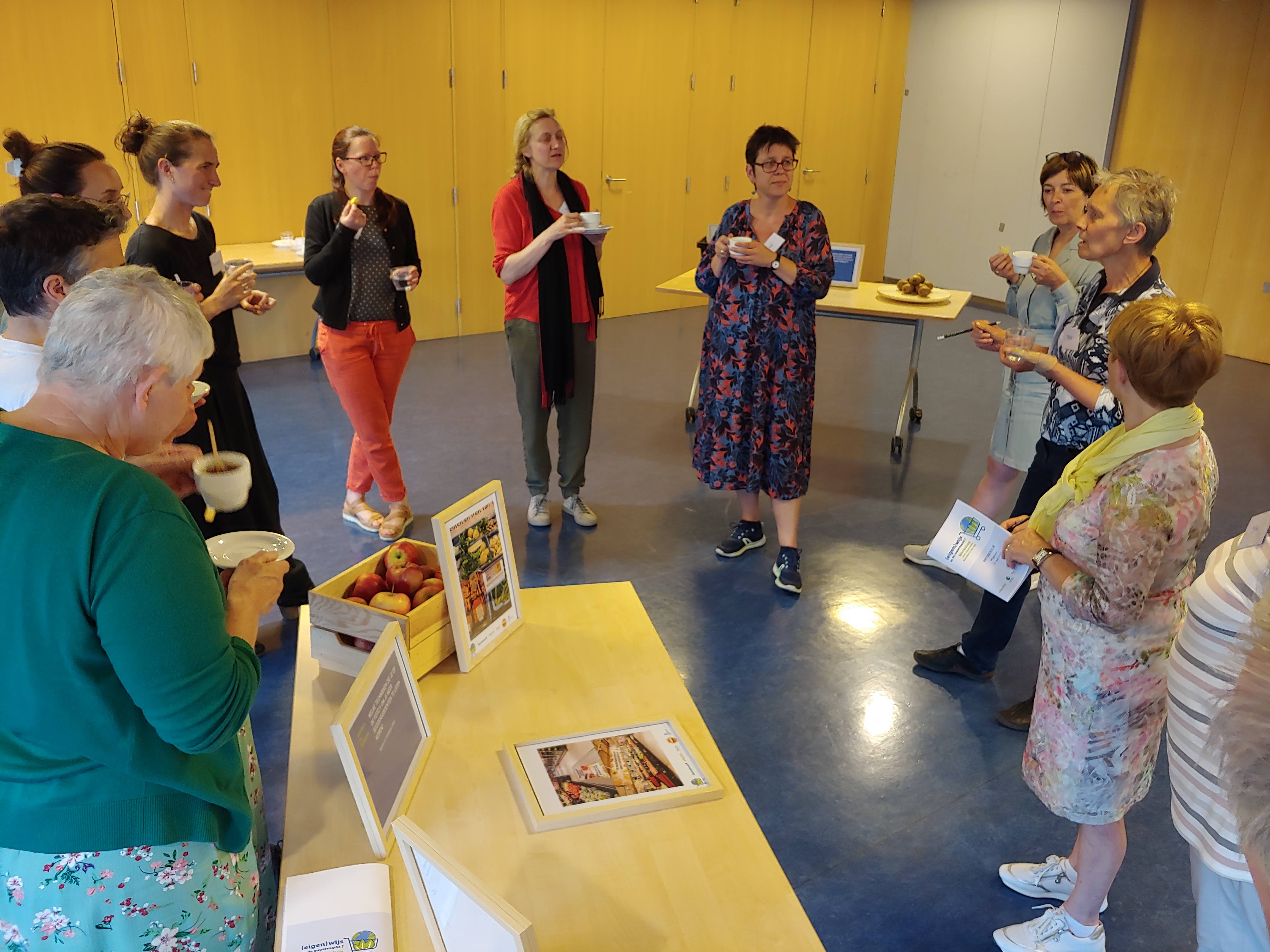
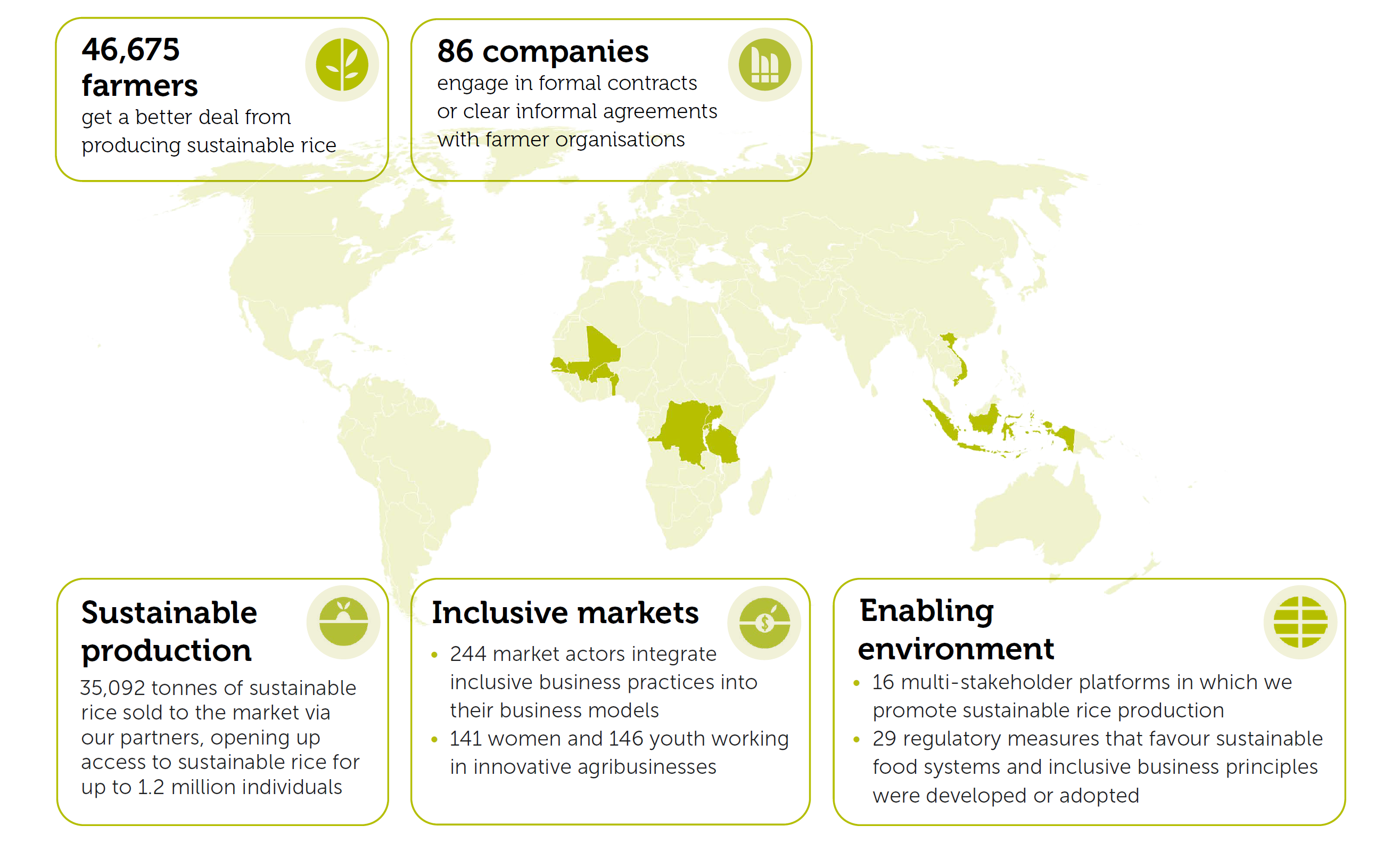
Explore some of the highlights of our Sustainable Rice programme in 2024.
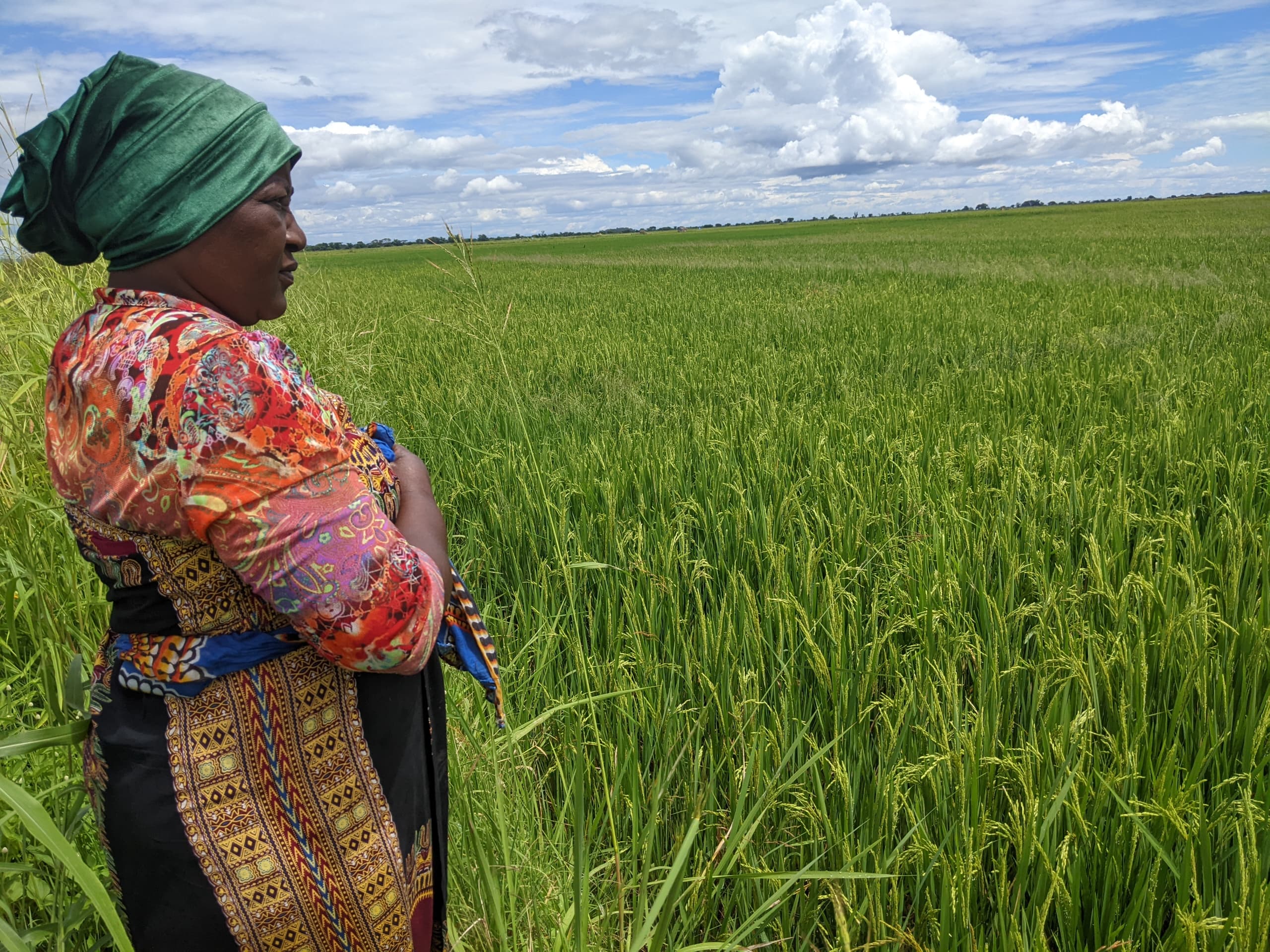
%20(1).jpeg)
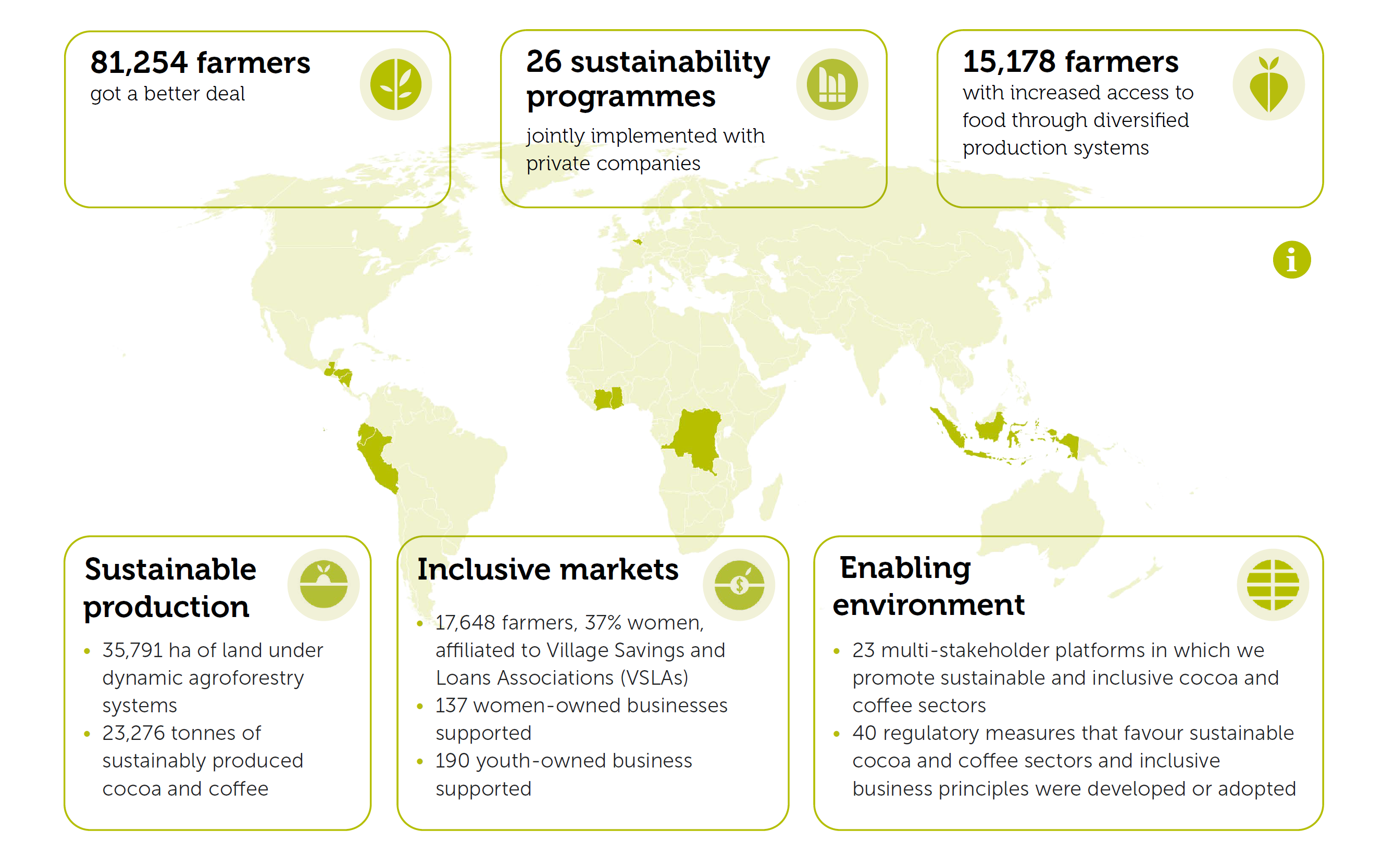
Explore some of the highlights of our Sustainable Cocoa and Coffee programme in 2024.
.jpg)
.jpg)

We closely work with cooperatives, civil society organisations, private companies, commodity platforms, government institutions, business service providers, research institutes, knowledge networks and many other food system actors.
Who are the partners we collaborate with?
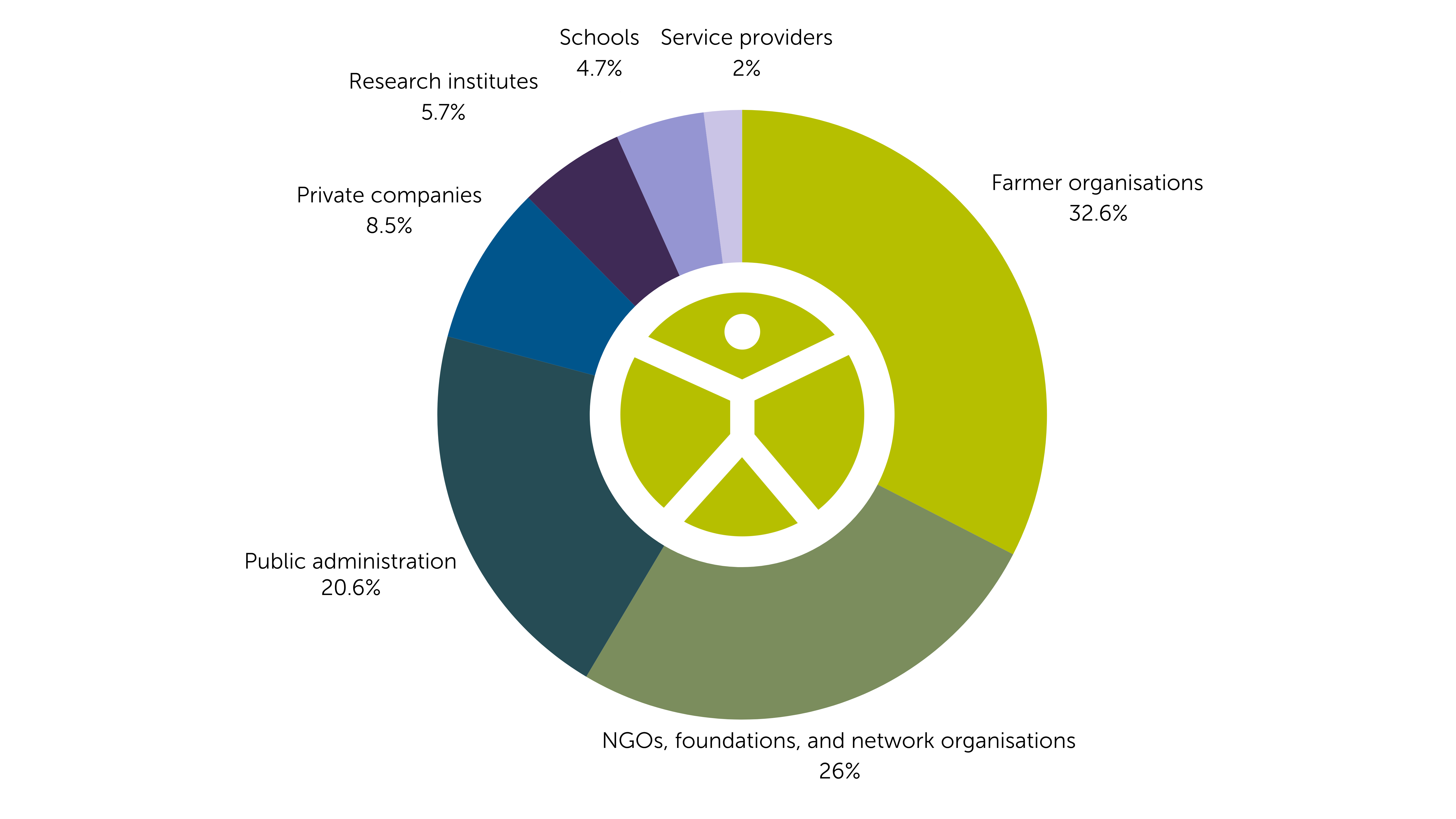
In 2024, Rikolto financially supported 163 organisations in 18 countries in Africa, Asia and Latin America, compared to 193 the previous year. 48% of these are farmers’ organisations, as in 2023. Apart from farmer organisations, we also closely work with – and sometimes financially support – local NGOs, commodity platforms, different national and sub-national government institutions, business service providers and/or research institutes.
We can count on the support of a wide range of donors, from governments to multilateral organisations, foundations and companies.
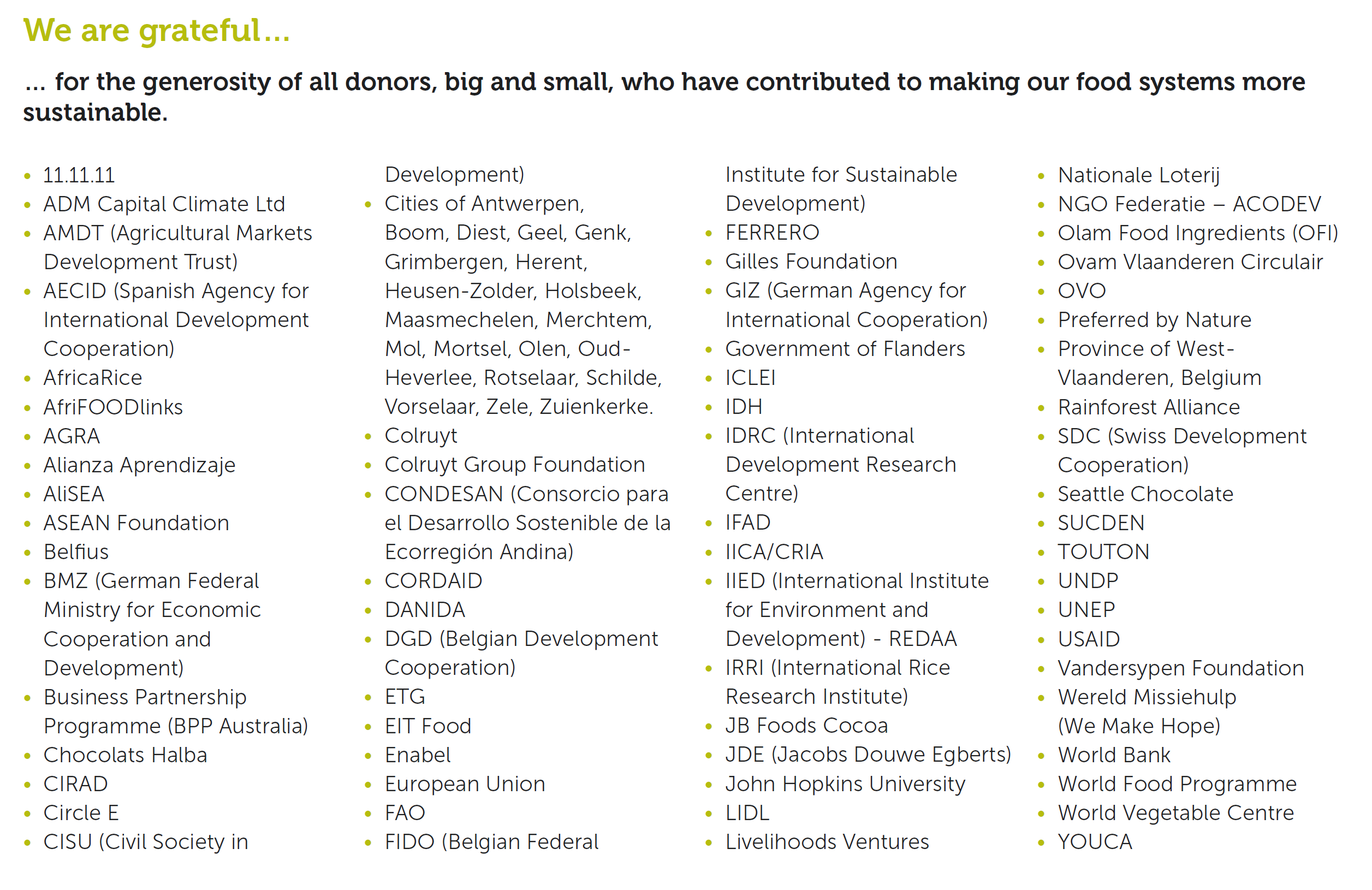
We can also count on the support of a loyal base of private donors in Belgium, which we are continuing to build. In 2024, we raised a total of €786,218 of private funding for the Rikolto network, compared to €1,092,731 in 2023. We shifted our campaign efforts from one-shot-fundraising to a lead-capture strategy. This strategy results in a steady inflow of new contacts that can grow into loyal donors. We succeed in keeping our donations level relatively steady; however, the direct campaign and event incomes have decreased.
In 2024, our team consisted of 216 people from 20 nationalities, with nearly half of our colleagues based in Africa.
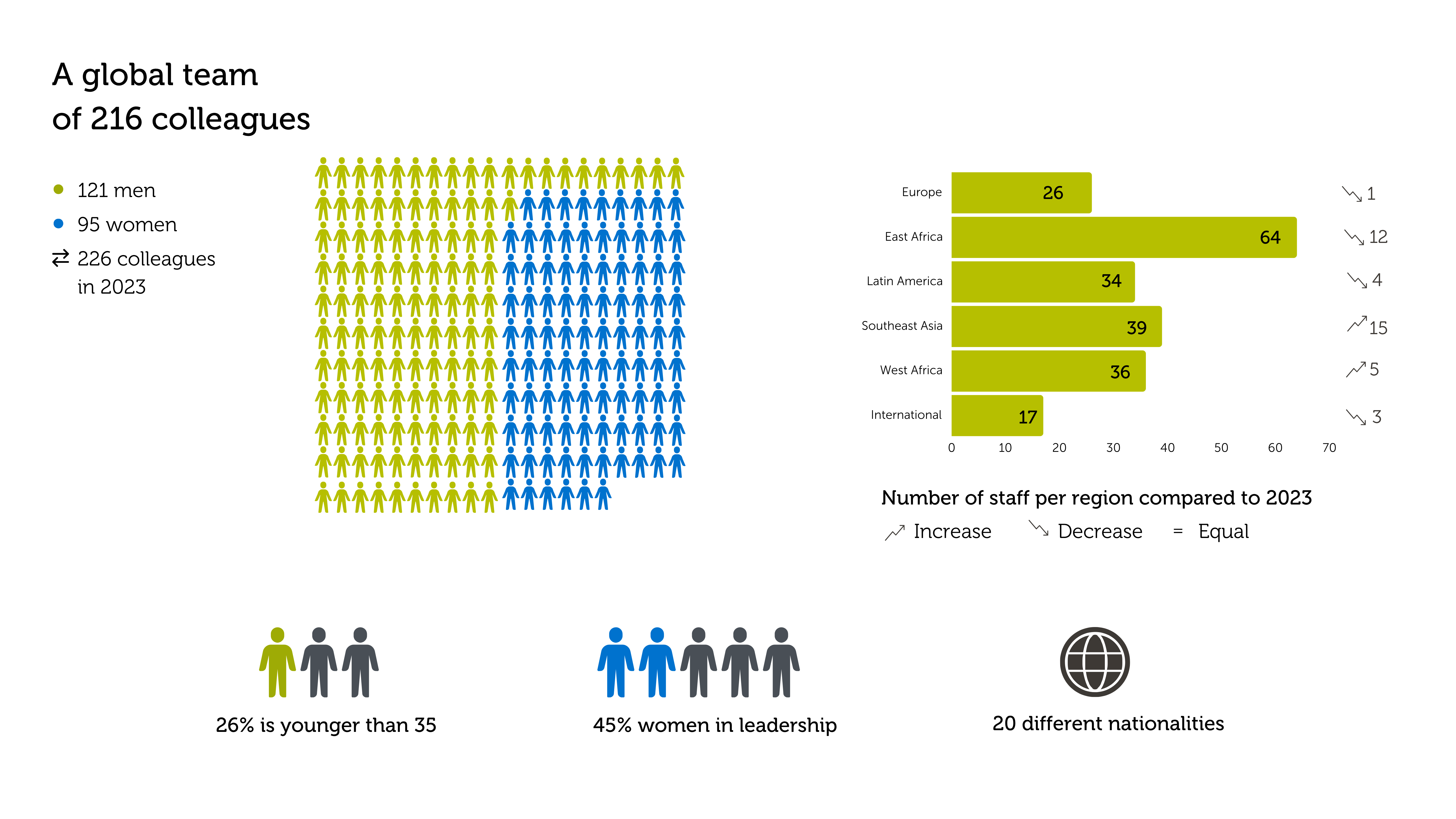
We keep striving to achieve a good gender balance. In 2024, it has slightly improved towards 55 % men and 45 % women, compared to 60% men the year before. The 55/45ratio is reflected in our leadership positions.
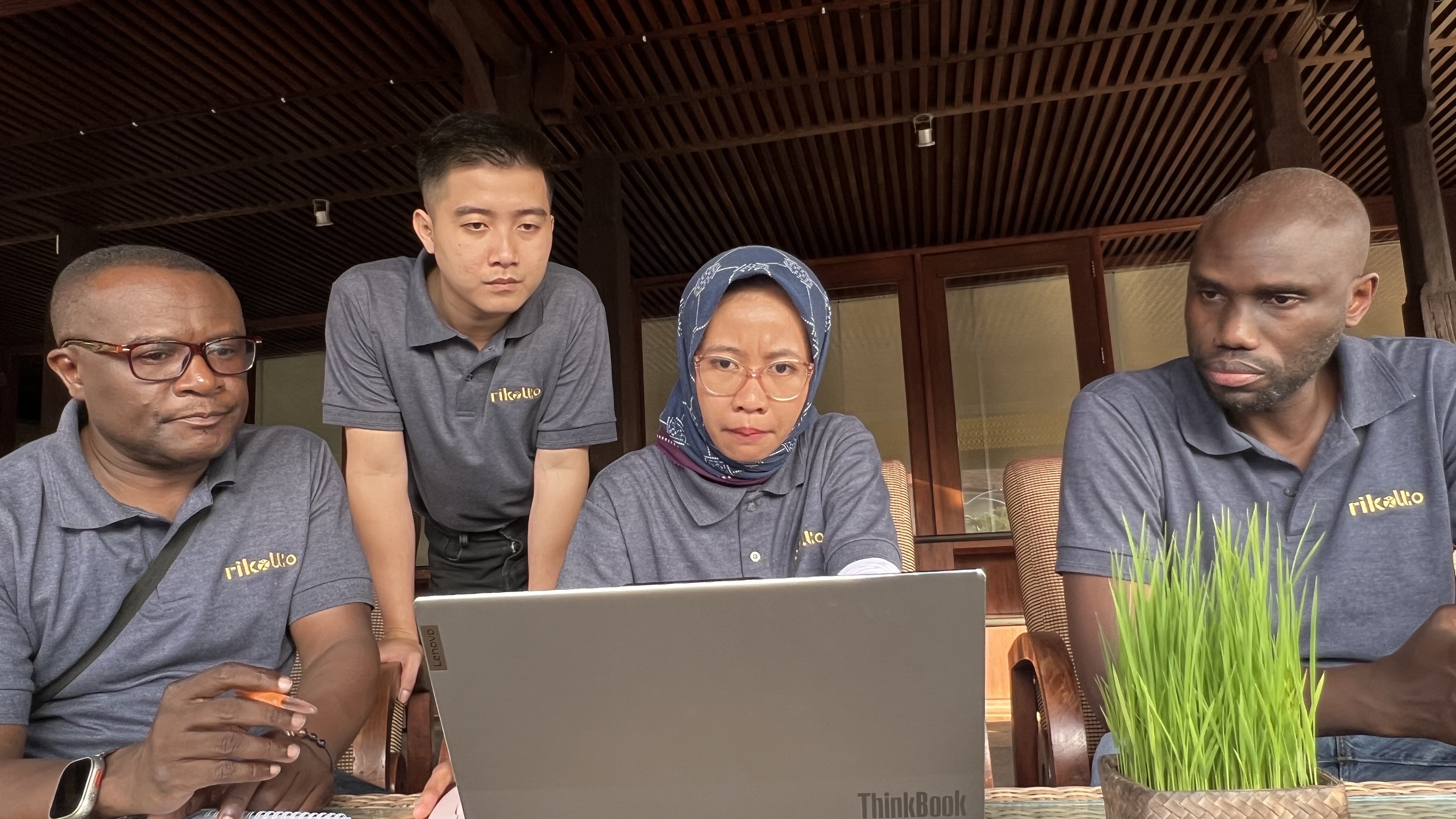
This report covers the financial activities of three entities: the Belgian Public Interest Foundation Rikolto International s.o.n., Rikolto Belgium v.z.w., and Rikolto Consult. In total, the three entities spent € 21,902,214 in 2024 and received € 22,112,759, resulting in a positive year balance of € 210,545.